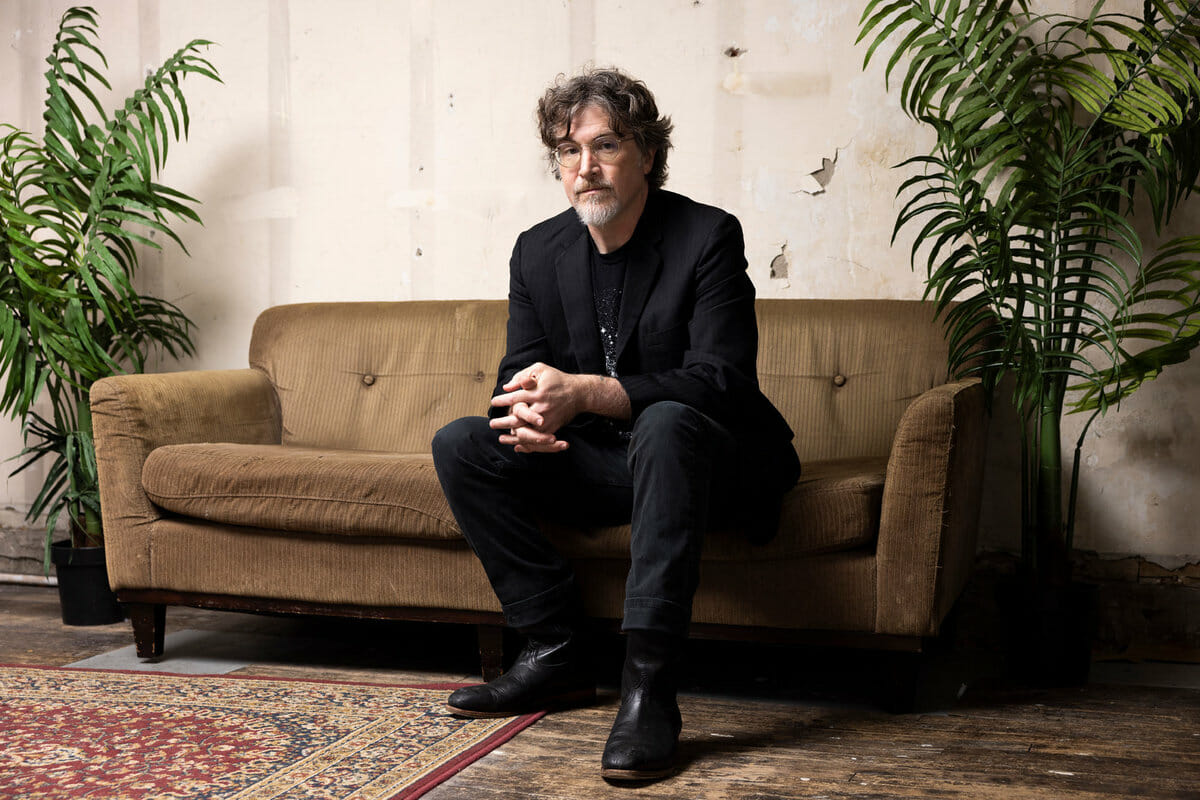Spotlight: Chris Forsyth

Chris Forsyth has been thinking a lot about evolution recently. “I feel like it’s a byproduct of trying to make sense of the world and how fast paced information is,” the Philadelphia-based guitarist says. “I look at my own life, and I couldn’t have foreseen most of the big changes that happened. We have these expectations. And a lot of the expectations right now don’t look too good. So what do you do with that?”
For Forsyth, the answer lies within what he’s already done throughout his 20-plus year career as a working musician—using his instrument to create winding, guitar-heavy compositions that take listeners on a remarkable journey. His power exudes itself not only in his tone, but also in his ability to craft music that feels a bit dormant these days. Sure, rock music exists in a sphere somewhere, but most musicians want to approach their craft in a very structured manner these days. However, Forsyth isn’t one of them.
“I grew up playing rock music in the late ‘80s and ‘90s. And then I got bored,” he says. “And, while I was still trying to develop my more conventional chops, [improv was] always the X factor for me. If there’s no freedom for something unexpected to happen or there’s no space in the music to be in the moment, then I get bored real quick.”
Forsyth’s approach to music has always reflected that, and, in recent years, his output has been prolific to say the least. He’s recorded with a number of different players, who have all helped drive his rhythmic guitar work. However, his primary vehicle over the last nine years has been the Solar Motel Band, a group he describes as a “fluid outfit.” And, in addition to issuing numerous studio, live and digital-only releases with the Solar Motel Band, he recently hooked up with buzzy New Jersey improvisational outfit Garcia Peoples for some dates and the live record Peoples Motel Band. Their vinyl run of 700 sold out the first day it was released, with a follow-up run of 300 selling out too.
“Since 2014, I’ve played about 220 live shows, and the bulk of those were the three year span of 2014-2016,” the guitarist says. “I’d be willing to bet that there are quite a few artists who have played as many shows in a year or two as I have since 2014. I’d like to play more shows actually, but I’ve never had a booking agent.”
That DIY work ethic set the template for ambitious, yet extremely cohesive, new album Evolution Here We Come, a seven-song set that features Forsyth doing what he does best—crushing the guitar. And, in true improvisational fashion, he fleshes out those tracks with a loose collective of players. The main band boasts Forsyth, Garcia Peoples’ Tom Malach (guitar), Tortoise’s Doug McCombs (bass) and Ryan Jewell (drums), who’s augmented with talented folks such as Ryley Walker and Bill MacKay. In addition, Sun Ra luminary Marshall Allen, guitarist Bill Nace, Darkside’s Dave Harrington and onetime Antibalas mainstay Stuart Bogie also contribute at various points.
“It happened very organically,” he says, noting that this is the first time that he’s ever created demos. “At the end of the last studio record, All Time Present, I really felt like I had exhausted a lot of the things that I had set out to do in the last 10 years. That’s satisfying, but it’s also like, ‘Now what?’ I remember thinking, ‘I want to focus on stuff that’s kind of more heavy, with a heavier emphasis on improvisation.’ And I started to do that with the gigs that I was playing. And then, of course, the pandemic hits, and there’s that urge to work with these longer, kind of slower moving things in a more slow moving way. It was more of a byproduct of the world that we were living in. And so I tried to roll with it.”
Evolution Here We Come starts in a mellow space, with electronics surfacing around drumbeats that eventually start to get more and more stuttery. It’s a fake out of sorts; Forsyth is clearly setting up a tempo for the unexpected. Songs like “Heaven for a Few” and “Long Beach Idyll” quickly continue showing off Forsyth’s guitar wizardry, as he creates melodic-sounding numbers that sound alternately longing and hopeful.
It’s a tone he’s mastered throughout the years—and one particularly well suited for Harrington’s production assistance. And their collaborative partnership quickly yielded some surprises. When Forsyth sent Harrington the last song, “Robot Energy Machine,” the Darkside guitarist extended it to just over 14 minutes. “He’s the architect of this whole outro jam,” he says. “He added all kinds of instruments, percussion and various things. And, when he sent it to me, I was like, ‘Damn you, this was supposed to be like a three-and-a-half minute fade-out—but now we can’t cut this!’”
Forsyth plans to hit the road this fall with most of his Evolution band—though Heron Oblivion’s Charles Saufley will swap in on guitar for Malach—co-headling shows with Espers’ Meg Baird. There’s even talk about doing a joint set together. It’s an improv ethos that truly extends to all parts of his life. “I think, as a result, there’s a continuity— like with evolution,” he says. “There’s a continuity with what I did before, but I do feel like there’s some rather significant changes [now.] That said, I’m also interested in songs and composition—so finding this equilibrium where those things can co-exist and share value is always crucial to me.”




















